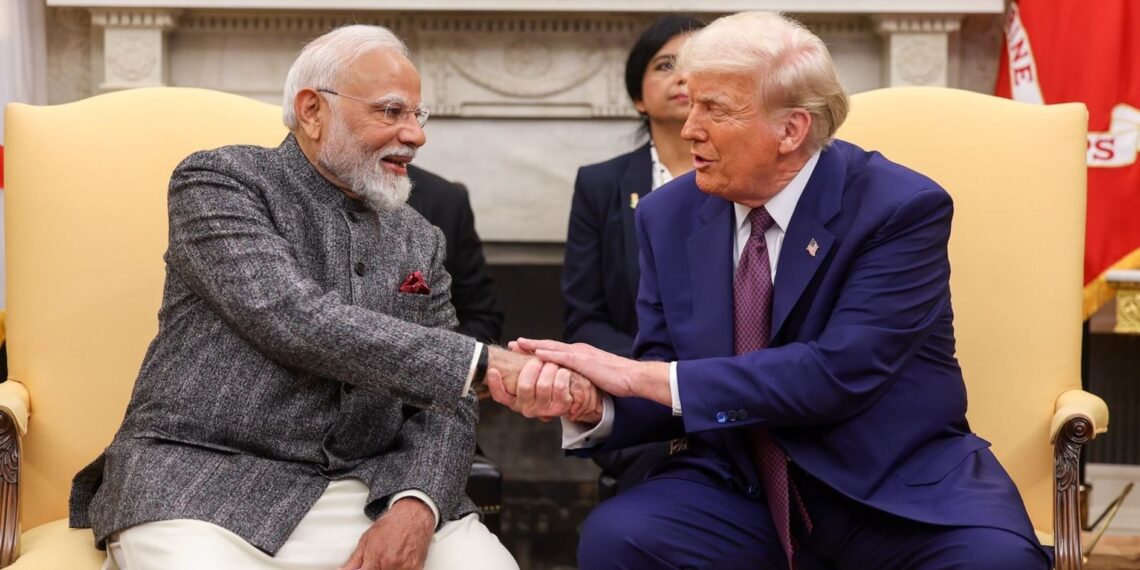US President Donald Trump has signalled that his administration may not impose additional secondary tariffs on countries purchasing Russian crude oil, easing concerns in India over potential economic repercussions.
Speaking to Fox News aboard Air Force One on Friday, Trump suggested that while secondary sanctions remain an option, they may not be necessary.
“Well, he [Russian President Vladimir Putin] lost an oil client, so to speak, which is India, which was doing about 40 per cent of the oil. China, as you know, is doing a lot… And if I did what’s called a secondary sanction, or a secondary tariff, it would be very devastating from their standpoint. If I have to do it, I’ll do it. Maybe I won’t have to do it,” Trump said.
The remarks came as Trump headed to Alaska for a high-stakes summit with Putin, which concluded without any breakthrough on ending the Russia-Ukraine conflict.
Just a day before the summit, US Treasury Secretary Scott Bessent had cautioned that Washington could escalate secondary sanctions if talks with Putin failed.
Speaking to Bloomberg, Bessent said, “I think everyone has been frustrated with President Putin. We expected that he would come to the table in a more fulsome way. It looks like he may be ready to negotiate.”
Bessent also indicated that measures against India could intensify if diplomacy faltered.
“We put secondary tariffs on the Indians for buying Russian oil. And I could see, if things don’t go well, then sanctions or secondary tariffs could go up,” he noted.
He further explained that sanctions policy remains flexible: “Sanctions can go up, they can be loosened. They can have a definitive life. They can go on indefinitely.”
ALSO READ: Petrol bomb hurled at police vehicle in Meghalaya
Despite the softer tone on future action, Trump had earlier announced tariffs totaling 50 per cent on India, including a 25 per cent levy specifically on Russian oil imports.
These measures are scheduled to take effect on August 27.
Reacting to the development, India’s Ministry of External Affairs (MEA) criticised the move as “unjustified and unreasonable.”
In a statement, the MEA said, “Like any major economy, India will take all necessary measures to safeguard its national interests and economic security.”















